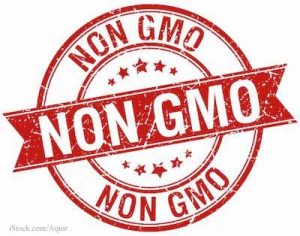Two researchers associated with the European Food Safety Authority (EFSA) have discovered that the most common genetic regulatory sequence in commercial genetically modified crops (GMOs) encodes a significant fragment of a viral gene. Their report states that this viral gene (called Gene VI) “might not be safe for human consumption.
 Scientists Nancy Podevin and Patrick du Jardin discovered that 54 of the 86 GMO plants approved for use in the US contain the gene. Those crops are fed to farm animals that produce eggs, milk, and meat. The gene “may disturb the normal functioning of crops, including their natural pest resistance.” In addition, when Gene VI is intentionally expressed in transgenic plants, they develop growth deformities. The report’s authors also state that Gene VI is an inhibitor of RNA silencing, and it interferes with host defenses.
Scientists Nancy Podevin and Patrick du Jardin discovered that 54 of the 86 GMO plants approved for use in the US contain the gene. Those crops are fed to farm animals that produce eggs, milk, and meat. The gene “may disturb the normal functioning of crops, including their natural pest resistance.” In addition, when Gene VI is intentionally expressed in transgenic plants, they develop growth deformities. The report’s authors also state that Gene VI is an inhibitor of RNA silencing, and it interferes with host defenses.
But the European Food Safety Authority itself rejects the claim that this gene may be hazardous to human health. Their response to the report states this report is “not a new discovery of a viral gene nor do they indicate safety concerns in previously evaluated GMOs.” According to the FSA, the gene belongs to the Cauliflower Mosaic virus that can’t infect humans or animals. The virus also infects many plants with “no recorded health effects.”
Furthermore, EFSA was aware of the existence of these gene fragments before the report was published. The paper is not an official EFSA output, but was authored by a former member of the EFSA staff and the current Vice-Chair of the GMO Panel “in an independent capacity.”
EFSA regulators had a choice when presenting with this report. They could have recalled all CaMV Gene VI containing crops, or could have conducted a retrospective risk assessment of the CaMV promoter and its Gene VI sequences. They chose the second path.
No country has officially undertaken a full review of the possible long term effects of GMO crops on human health. Monsanto’s trials that showed no ill effects lasted just three months. Last year, a group headed by scientist Dr. Gilles-Eric Seralini found tumor development in rats fed genetically modified corn after four months. While his study has been criticized for design flaws, some scientists have been supportive of his findings, stating that the same flaws in his study were present in the Monsanto studies that showed GMOs posed no health risk.
The authors of the report that pose the viral gene is a problem would like to see further research on this issue. Ideally, they would like to see a total recall on GMOs that contain the FMV promoter and its own overlapping Gene VI.





As a consumer, I respect claims of safety that are well founded and don’t limit themselves to frank evidence within 3 months. I also respect scientists who are aware that, given an opportunity, our knowledge base evolves. In this case, requesting additional research sounds like an appropriate course of action. Indeed, if the naysayers are correct, they have nothing to lose by further investigation. If they are wrong, we all stand to gain.
The Daily Mail was taken for a ride with this scare story by the Bioscience Resource Project, which made the false claims of potential toxicity and misrepresented the study in question. Here are some links which should help clear this up. The first link contains a statement from the actual authors of the misrepresented study:
http://www.senseaboutscience.org/for_the_record.php/114/does-a-viral-gene-found-in-gm-food-raise-safety-concerns
http://alandove.com/content/2013/01/whos-afraid-of-the-big-bad-orf/
I looked at the link to “sense about science”. Upon further examination it is apparent this is a shill organization funded by several chemical and pharmaceutical companies that profit directly from GMO crops. Additionally, this organization uses information derived from educational institutions funded by the same groups.
The study authors’ statement “No risks to human health were identified when this gene was present in GM plants.” does not in any way assure us that there is, in fact, no risk – only that they didn’t find any. All we know from available research and questions is that more research is necessary and /required/ as soon as possible – which is just the industry does not want to happen – because they have too much invested in GMOs.
I also agree with Mark’s points, so thanks for your comment, Mark.
I discovered years ago, that eating GM foods cause me to have severe pains in my stomach, among other serious symptoms. I have to avoid them, and any food products that contain GMOs. I’ve talked to other people who also have to avoid genetically modified foods, too. Organic foods, and those that have never been adulterated with GMOs are much safer for me.